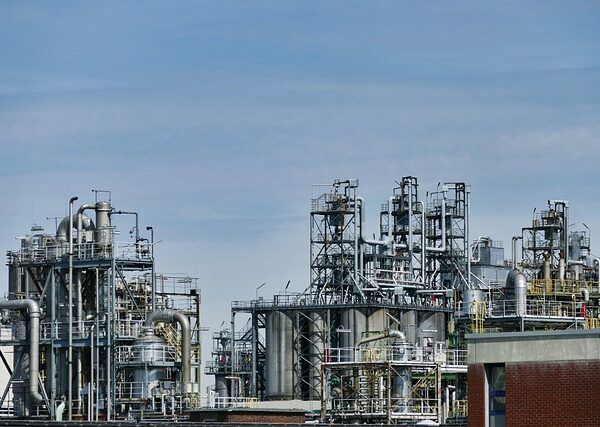Select Oil Changes: Navigating the Evolving Landscape
Introduction
In the dynamic realm of energy management, “Select Oil Changes” have emerged as a strategic initiative, offering a nuanced approach to optimizing resource allocation and environmental sustainability. This comprehensive guide delves into the intricacies of this concept, exploring its global impact, economic implications, technological innovations, and policy frameworks. By examining these aspects, we aim to provide valuable insights for stakeholders, from industry professionals to policymakers, navigating the evolving landscape of energy practices.
Understanding Select Oil Changes
Definition and Core Components
“Select Oil Changes” refer to a dynamic process involving the strategic selection and periodic replacement of engine oil in various applications, ranging from automotive to industrial sectors. This approach differs from traditional, one-size-fits-all oil change routines by tailoring oil choices based on specific operating conditions, load demands, and environmental factors.
The core components include:
- Oil Type Selection: Choosing the appropriate base oil (e.g., mineral, synthetic) and adding additives to meet performance criteria.
- Condition Monitoring: Utilizing advanced sensors and diagnostic tools to track operational data, enabling precise timing for oil changes.
- Dynamic Adjustments: Modifying oil specifications based on real-time operating conditions, ensuring optimal performance and efficiency.
Historical Context and Significance
The concept has its roots in the late 20th century when advancements in petrochemicals and engine technology prompted a shift from conventional oil changes. Early implementations focused on heavy-duty vehicles and industrial machinery, where conditional monitoring and specialized oils significantly enhanced equipment lifespan and performance. Over time, its benefits have been extended to lighter vehicles, aircraft, and even power generation systems.
Its significance lies in several key areas:
- Environmental Sustainability: By optimizing oil usage, it reduces waste and the environmental footprint associated with oil production and disposal.
- Cost Efficiency: Proactive oil change strategies can minimize downtime, lower maintenance costs, and extend equipment life, benefiting operators and owners.
- Performance Optimization: Tailored oil solutions enhance engine efficiency, reduce wear, and improve overall system reliability.
Global Impact and Trends
International Influence
“Select Oil Changes” have gained global traction, with adoption varying across regions due to unique energy landscapes and regulatory frameworks. North America and Western Europe have been early adopters, driven by stringent environmental regulations and advanced technology infrastructure. In contrast, emerging markets like Asia-Pacific and Middle East are witnessing rapid implementation as industrialization and vehicle penetration rates surge.
Regional Trends
- North America: Stricter emissions norms and a mature automotive industry drive the adoption of advanced oil change technologies, with a focus on bio-based and synthetic oils.
- Western Europe: Stringent environmental policies have led to widespread use of low-viscosity oils and conditional monitoring systems, particularly in fleet operations.
- Asia-Pacific: Rapid urbanization and vehicle sales growth are fueling the demand for efficient oil solutions, with a growing preference for lightweight vehicles and advanced engine designs.
- Middle East: High vehicle ownership and demanding operating conditions prompt the use of high-performance oils, often tailored to extreme climates and heavy loads.
Economic Considerations
Market Dynamics
The global market for “Select Oil Changes” is characterized by dynamic growth, driven by increasing energy sector digitalization and environmental awareness. The market can be segmented based on oil type (conventional, synthetic, bio-based), application (automotive, industrial, aviation), and regional variations. Key trends include the rising adoption of electric and hybrid vehicles, which impact oil change routines, and the integration of advanced analytics to optimize maintenance schedules.
Investment Patterns
Investments in this sector are multifaceted, encompassing:
- Research and Development: Companies allocate resources to develop novel synthetic oils, additives, and monitoring technologies, aiming for improved performance and sustainability.
- Infrastructure Development: Upgrades to diagnostic equipment, sensor technology, and data analytics platforms enable precise condition monitoring and efficient oil change practices.
- Fleet Management Services: Specialized service providers offer tailored oil change solutions, including remote monitoring and predictive maintenance services, catering to large fleet operators.
Economic Impact
The economic implications are far-reaching:
- Cost Savings: Proactive oil change strategies can lead to substantial savings for operators by reducing downtime, minimizing equipment failures, and optimizing fuel efficiency.
- Extended Equipment Lifespan: Improved oil management enhances the longevity of engines and mechanical components, lowering replacement costs.
- Employment Opportunities: The sector contributes to job creation in research, manufacturing, and maintenance services, fostering economic growth.
Technological Advancements
Innovation Highlights
Technological breakthroughs have revolutionized “Select Oil Changes”:
- Advanced Additives: Development of specialized additives offering improved anti-wear, anti-oxidation, and cleaning properties, enhancing oil performance.
- Sensor Technology: Miniaturized sensors and wireless communication enable real-time monitoring of critical engine parameters, facilitating precise oil change timing.
- Data Analytics: Integration of machine learning algorithms analyzes operational data to predict equipment failures, optimize oil specifications, and enhance maintenance strategies.
- Synthetic Oil Formulations: Continued advancements in synthetic oil technology provide enhanced performance, improved viscosity stability, and superior low-temperature fluidity.
Impact and Future Potential
These innovations have led to:
- Improved Efficiency: Modern oils and monitoring systems contribute to reduced fuel consumption and lower emissions, aligning with global sustainability goals.
- Enhanced Reliability: Proactive oil management reduces the likelihood of catastrophic engine failures, ensuring consistent performance and safety.
- Data-Driven Decisions: Advanced analytics provide valuable insights for optimizing maintenance routines, scheduling, and resource allocation.
In the future, expect further integration of artificial intelligence, Internet of Things (IoT) devices, and cloud-based platforms to create smart, interconnected oil change systems, enabling predictive and prescriptive maintenance.
Policy and Regulation
Governance and Frameworks
“Select Oil Changes” operate within a complex web of policies and regulations aimed at environmental protection, safety, and economic development:
- Environmental Regulations: Emission standards and waste management directives influence oil selection and disposal practices, encouraging the use of eco-friendly oils and responsible handling.
- Safety Standards: Industry-specific regulations ensure the safe handling and storage of oils, particularly in hazardous environments.
- Energy Efficiency Policies: Incentives and mandates promote the adoption of energy-efficient technologies, including advanced oil change practices.
Legislative Influence
Key legislative bodies shaping this landscape include:
- International Organizations: The International Energy Agency (IEA) provides guidelines and research on sustainable energy practices, indirectly impacting oil change strategies.
- National Governments: Strict environmental policies in countries like the EU and China drive innovation in low-viscosity and eco-friendly oils.
- Regional Bodies: In North America, the US Environmental Protection Agency (EPA) sets emission standards affecting engine oil choices.
Challenges and Criticisms
Overcoming Barriers
Despite its benefits, “Select Oil Changes” face several challenges:
- Initial Implementation Costs: Upfront investment in advanced monitoring systems, sensors, and data analytics can be significant for small businesses and operators.
- Skill Gap: Specialized knowledge and training are required to interpret data and implement dynamic oil change strategies, posing a challenge in certain regions.
- Data Privacy Concerns: As oil change practices become increasingly data-driven, ensuring secure handling of operational data while adhering to privacy regulations is crucial.
Proposed Solutions
Strategies to overcome these challenges:
- Government Incentives: Providing subsidies or tax benefits for adopting advanced oil change technologies and training programs can accelerate widespread implementation.
- Industry Partnerships: Collaboration between manufacturers, service providers, and regulatory bodies can facilitate knowledge sharing, standardization, and cost reduction.
- Open-Source Data Platforms: Creating accessible, secure platforms for data exchange could foster innovation while addressing privacy concerns.
Case Studies
Real-World Applications
1. Automotive Industry: Tesla’s Adaptive Oil Change System
Tesla, the electric vehicle (EV) pioneer, has implemented an adaptive oil change system in its vehicles, leveraging advanced sensors and machine learning. This system monitors engine conditions in real time, adjusting oil viscosity and additives accordingly. As a result, Tesla owners experience reduced maintenance intervals and improved overall vehicle performance, showcasing the benefits of dynamic oil management in a mass-market setting.
2. Aviation Sector: Boeing’s Smart Engine Oil Monitoring
Boeing, in collaboration with engine manufacturers, developed a smart oil monitoring system for commercial aircraft engines. This technology uses ultrasonic sensors to track oil health and sends alerts when maintenance is required. By minimizing unexpected engine failures, this approach reduces flight delays and associated costs, demonstrating the critical role of “Select Oil Changes” in aviation safety and efficiency.
3. Manufacturing: General Motors’ Eco-Friendly Lubrication
General Motors (GM) introduced a range of eco-friendly lubricants for its vehicles, focusing on reduced environmental impact without compromising performance. These oils incorporate recycled base stocks and advanced additives, lowering carbon emissions and waste generation. GM’s initiative highlights the potential for “Select Oil Changes” to drive sustainability in large-scale manufacturing operations.
Future Prospects
Growth Areas and Emerging Trends
The future of “Select Oil Changes” is poised for significant growth and innovation:
- Electric Vehicle Integration: As EV adoption accelerates, advanced oil change practices will be crucial for maintaining battery cooling systems, inverters, and other components, presenting new challenges and opportunities.
- Digital Twin Technology: The concept of digital twins, virtual replicas of physical assets, will enable predictive maintenance by simulating equipment behavior, optimizing oil change routines, and enhancing overall system performance.
- Sustainable Oils: Research into bio-based and recycled oils is expected to intensify, offering promising alternatives to conventional oils while reducing environmental impact.
- Remote Monitoring and Diagnostics: Advancements in IoT and 5G technologies will facilitate real-time monitoring and diagnostics, enabling remote oil change recommendations and service.
Conclusion
“Select Oil Changes” represent a transformative approach to energy management, offering numerous benefits across diverse sectors. From environmental sustainability to cost efficiency and improved equipment performance, its impact is profound. As the global landscape continues to evolve, the adoption of advanced oil change technologies will be pivotal in shaping a more efficient and environmentally conscious future. By addressing challenges, leveraging technological advancements, and navigating policy frameworks, stakeholders can unlock the full potential of “Select Oil Changes,” contributing to a dynamic and sustainable energy ecosystem.
FAQ Section
Q: How do “Select Oil Changes” differ from traditional oil changes?
A: Traditional oil changes follow a fixed schedule, using a universal oil type for all operating conditions. In contrast, “Select Oil Changes” dynamically adjust oil specifications based on real-time operational data, considering variables like load, temperature, and engine speed.
Q: What are the environmental benefits of this practice?
A: It reduces waste generation by optimizing oil usage and minimizing disposal. Furthermore, tailored oil solutions can lower fuel consumption and emissions, contributing to a cleaner environment.
Q: Can “Select Oil Changes” be cost-effective for small businesses?
A: While initial implementation costs may be higher, proactive oil change strategies can lead to substantial long-term savings by reducing downtime and equipment failures, making it a financially viable option in the long run.
Q: How does technology play a role in improving oil change practices?
A: Technological advancements such as sensors, data analytics, and advanced additives enable precise monitoring and control, leading to improved performance, reduced wear, and enhanced environmental efficiency.
Q: Are there any safety concerns associated with dynamic oil change systems?
A: With proper implementation and adherence to safety standards, these systems pose minimal additional risks. In fact, they contribute to safer operations by reducing the likelihood of catastrophic engine failures.
Modern cars require specialised engine oil for advanced systems like electric and hybrid engines. Using incorrect oil can cause damage. Regular select oil changes based on manufacturer recommendations…….
In today's complex automotive market, expert diagnostics are vital for vehicle maintenance. While routine oil changes are essential, a comprehensive assessment by skilled technicians goes beyond…….
Understanding vehicle needs is crucial for effective car care. Oil changes vary by make, model, driving conditions, and climate, with specialized services like Select Oil Changes catering to individua…….
Understanding your vehicle's unique oil needs through age, mileage, and conditions is crucial for engine performance. Selecting high-quality oil and filters reduces change intervals and enhances…….
Select oil changes tailored to high-mileage vehicles and hot summer conditions offer improved engine efficiency, fuel economy, and reduced maintenance costs. Use right tools like adjustable oil drain…….
Selecting synthetic oil changes for vehicles offers enhanced engine protection, superior lubricity, and extended service intervals over conventional oils. These advanced formulas resist wear, perform…….
Regular oil service with Select Oil Changes is crucial for vehicle health and safety, preventing costly repairs and enhancing fuel efficiency. Choosing the right oil, high-mileage recommendations, and…….
Same-day pick-up and delivery services like Select Oil Changes revolutionize automotive maintenance, offering busy professionals convenient scheduling without disrupting their routines. By streamlinin…….
Online scheduling for oil services revolutionizes vehicle maintenance by offering a convenient and informative way to manage regular servicing. Vehicle owners can save time and effort while ensuring t…….
Optimal oil change frequency varies based on driving conditions, climate, and vehicle age. Regular tune-ups with synthetic oils enhance performance, reduce wear, and offer environmental benefits. Loca…….









